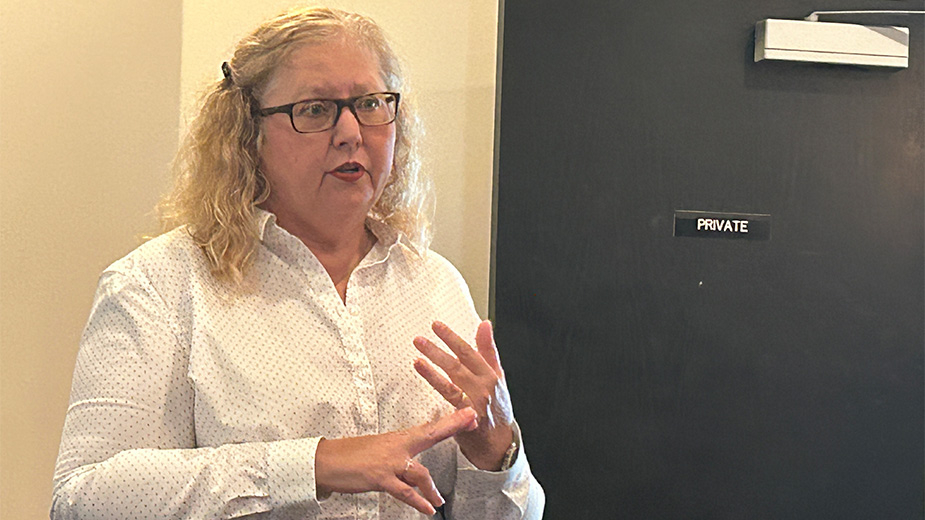Banks, Credit Unions Help Students Manage Finances
YOUNGSTOWN, Ohio – There’s a lot of work before a student starts college – tuition and financial aid packages to review, textbooks to buy, bags to pack and unpack, a dorm room to decorate. And as the school year begins, many college students find themselves responsible for the first time to manage their day-to-day expenses.
“It is a newly found freedom students might feel and they need to understand the importance of [setting priorities]. They really need to make choices on ‘What do I have and what can I afford?’ ” says Sandy Zimmerman, retail market manager for PNC Bank.
Zimmerman oversees retail banking for PNC’s central and eastern Ohio districts. Having students enter the bank to discuss their banking needs is a first step that allows PNC to offer solutions and engage with the students, she says.
A national study conducted for Sallie Mae, “Majoring in Money: How American College Students Manage Their Finances,” finds that 83% of those interviewed want to learn more about managing money better, especially saving and budgeting.
In 2016, Sallie Mae and Ipsos, an independent global market research company, interviewed 800 college students ages 18 to 24.
Eighty-five percent of the students interviewed use debit cards to make purchases, 86% use cash, 77% use mobile payments and 56% have at least one credit card. Sixty-nine percent reported that each month they carry an average balance of $500 or less. Seventy-three percent pay bills without help from a parent or other adult and 65% think they have good money management.
“Students manage expenses very differently and it’s based upon guidance they’re given and that’s where we can provide guidance so they succeed,” Zimmerman says. “Many throughout middle school and high school got some advice and freedom about expenses, and now they have to do it more and more.”
Students use technology to manage and budget their expenses more than their parents did when they were in college. “Today it’s real time,” Zimmerman says, because a student can look at the mobile banking app on his phone and tell at once whether the balance in his bank account is wrong.
PNC Bank offers Virtual Wallet Student, an online and mobile banking account that helps college students monitor their day-to-day spending. It features a calendar tool that includes “danger day,” an alert informing the student his checking account balance is low or at risk of being overdrawn. It also allows funds to be transferred easily and immediately between his savings and checking accounts.
“Budgeting is a practice that is learned and the sooner students and young people can deploy that, the better off they are,” Zimmerman says.
Communication between the parent and child is crucial in setting a weekly or monthly budget. “Just be open and honest,” Zimmerman advises students and their parents.
A student setting a realistic and reasonable budget is important and he should not base it entirely on what parents think it should be. “What is realistic for a student could be going to a concert once a month or pizza every weekend,” Zimmerman says.
A student must be flexible with a budget should an unanticipated expense arise or he makes an arithmetic mistake. “Don’t get discouraged,” Zimmerman says. “A budget is as much about having a plan as it is about learning from making mistakes.”
Youngstown State University partnered with PNC Bank in January 2016 in a 10-year agreement where the bank provides students and employees financial services. Part of the partnership includes a co-branded website where students can complete account applications, manage their finances and find financial education information.
PNC offers students free workshops throughout the year on managing personal finances.
Seven Seventeen Credit Union offers online modules on managing finances as part of its Edge account for college students.
Students with an Edge account are offered a free WOW checking account, “because they’re usually focusing on studies, so the credit union waives the direct deposit requirement on the account,” says Eric Lanham, senior vice president of marketing for the credit union.
Other Edge perks includes an extra level of security, such as text alerts should a student’s balance drops below set amount, Lanham says.
Seven Seventeen helps student members with tuition by giving 12 $1,500 scholarships each year to incoming freshman. Two of the 12 are specifically for Edge members.
A Student Choice Student Loan from Seven Seventeen serves as a line of credit for members. All students can apply any time. “It’s designed to fill the gap between cost of education and the gap that’s not filled by scholarships,” Lanham says.
“We also do financial education geared toward young adults in a program called Knowledge of Financial Education,” he says. The program known as KOFE (pronounced “coffee”) gives members access to free financial counseling, online access to financial education modules and information on repaying student loans.
The next free online KOFE webinar, “Credit in a New Country” is scheduled Sept. 20 and will offer tips on establishing credit. To register go to KofeTime.com.
Copyright 2024 The Business Journal, Youngstown, Ohio.



